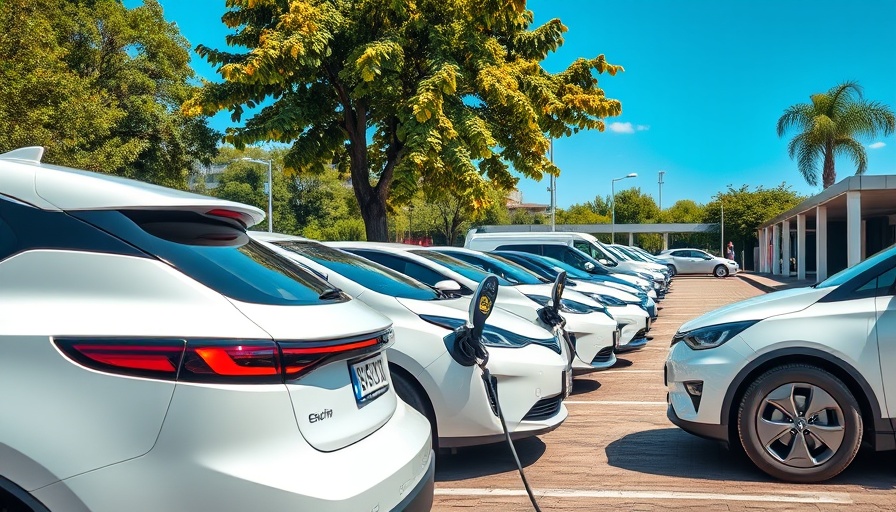
Understanding Your EV Battery for Longevity
As a boutique hospitality professional, you likely understand how important it is to maintain your electric vehicle (EV) for optimal efficiency and longevity. Electric vehicles are not just a mode of transportation, they represent a commitment to sustainability. Understanding the chemistry of your battery is crucial. Most EVs use lithium-ion batteries, which can last between 15 to 20 years with proper care. Knowing how to maintain the health of your EV battery is essential not just for keeping your vehicle operational but also for supporting eco-conscious practices.
Maximizing Battery Life with Charging Strategies
One of the most effective ways to ensure your EV’s battery lasts longer is to adopt smart charging habits. A common recommendation is to keep your battery charge between 20% and 80%. Regularly dropping below 20% degrades the battery’s health, while charging it to 100% puts unnecessary strain on it. Try to charge your EV to about 80% for daily use and save 100% charges for longer trips. This method not only maintains battery health but also supports your operations as a hospitality provider, ensuring your travel efficiency in fulfilling guest needs.
The Importance of Charging Types
Fast charging might be tempting, especially on busy days. However, frequent use of Level 3 fast chargers can lead to significant degradation of your battery over time. Instead, opt for Level 2 chargers whenever possible. These chargers are gentler on your battery and can enhance its longevity, which is important for sustainable operations in your eco-conscious business model.
Handling Weather Extremes
Extreme temperatures can adversely affect battery performance. Keeping your EV in ideal temperature ranges—between 20°F to 80°F (-6°C to 27°C)—is essential. If your property lacks shaded parking options, consider using a reflective cover while parked. Remember, extreme heat can reduce your EV’s driving range by 20-30%, drastically impacting your transport efficiencies. Cold temperatures, meanwhile, impede the battery’s ability to hold a charge. Understanding these factors allows you to optimize your hospitality service—offering guests reliable transportation while minimizing the carbon footprint of your operations.
Planning for Efficiency
It’s helpful to have a strategy for your driving and charging habits. Plan your routes and charging stops for longer trips to avoid overuse of fast chargers. Properly managing travel and charging can prevent unnecessary stress on your battery while enabling you to focus on providing exceptional guest experiences. This proactive approach not only maximizes your vehicle's battery life but also supports your commitment to sustainable hospitality.
Practical Insights for Hospitality Professionals
As you facilitate eco-friendly experiences, consider integrating electric vehicle charging stations at your accommodations. This can appeal to the growing number of eco-conscious travelers and enhance your guest offerings. Furthermore, educating guests on the sustainability benefits of EVs can foster a deeper appreciation for eco-conscious travel.
Embracing Sustainability in Transportation
By adopting the practices discussed above, you can enhance your EV’s battery life and contribute to a more sustainable transportation ecosystem. Your commitment not only supports the longevity of your vehicle but also aligns with your values as a hospitality provider.
In conclusion, as boutique hospitality professionals, embracing sustainable practices is vital. By employing the tips mentioned, you not only maximize your EV’s battery life but also position your business at the forefront of eco-conscious operations in the lodging industry. Consider implementing electric vehicle charging solutions on your property to cater to eco-minded guests. Sustainability can enhance your market presence and make a significant impact.
 Add Row
Add Row  Add
Add 



 Add Row
Add Row  Add
Add 

Write A Comment